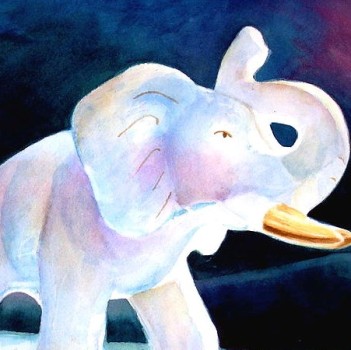An extract fromhttps://oridharma.wordpress.com/2020/03/08/the-ears-are-more-stupid-than-the-mouth/
We are responsible for our anger and complaints. What should we do to our heart? We must always give it warmth, love, sunlight and positive energy. I have written one essay with this title:
The ears are more stupid than the mouth.
When our mouth eats something which is not nice, or it may harm our body, the bitter things, the food with mould on it, a bad groundnut, we will quickly spit it out. We will brush the teeth and rinse the mouth. We stop it from entering our body as it might be poisonous. So, our body depends on the good food to get the nutrients. How about our heart? What food does it need? Our heart depends on the words, the thinking to live. So, the function of our ears and mouth is to swallow the food by looking or by hearing. If we were to compare our ears with the mouth, they are simply incomparable. The ears refuse to listen to good words. But they will pick up all the bad words. When people talk bad about them, their ears become so sharp, take every bad word to the heart, register them so clearly. When people explain that certain people are indeed not so bad, he will start to list out all their faults and mistakes. So, our ears are the most terrible organ. They always choose to pick up bad words. That is why Venerable Master Hui Jing has written the following phrases in his book ‘The Pure Land Way and the Mundane Truth’. It is thus stated, ‘Do not listen to right and wrong, do not spread the right and wrong, do not compare right and wrong.’ The problem is our ears enjoy listen to the right and wrong of others. After listening we believe in them. After believing, we start to harm ourselves by talking about the rights and wrongs of others, spreading them further on.
So, we must train our ears first. As I know it is not so easy. Look at what Confucius the Virtuous Sage had said, ‘Only at the age of 60 that I manage to subdue my ears.’ The great sage managed to subdue his ears at 60. So, we learners must practise thus: We must have a checker to check us on what we are supposed to listen and what not to listen. In our world, what is meant by the genuine words? What are the false words? Ultimately speaking, only the Namo Amitabha Buddha are the genuine words, others are fake. And in the false word, we must learn only to listen to words which will help our body and mind. Even if the words are false, they are still real as long as they can benefit us, make us happy. But you listen to the words which make your blood pressure goes up so high, the blood vessels in your brain explode, why must you listen to them even if they are true? You can also choose not to listen, right? For instance, when we know the food is poisonous, we will surely not eat it. So, we must choose to listen to the beneficial words only.
That is why the sayings go, ‘Do not see if it is not in accord with the etiquette, do not listen If it is not in accord with the etiquette. Do not talk about it if it is not in accord with the etiquette and do not make any move if it is not in accord with etiquette.’ We must train our ears this way. We must choose to listen to words which bring harmony, joy, words that help us to live healthily in body and mind. If the words make you agitated, afflicted, do not listen. They must be rumours. Find a chance to stop them and sweep them away.
In the Eight Verses to Cultivate this mind, the third verse is about contemplating the mind and severing the ignorance:
‘May I contemplate my mind constantly,
Whenever the afflictions sprout from it,
To harm oneself and others
I will sever it by force so that it is eradicated.’
生气,埋怨都是我们要负责的。我们应该如何照顾好这颗心?我们应该给于它温暖,爱,阳光和正能量。我写过一篇文章,题目是:
耳朵比口更蠢
当我们的口吃到不好吃的东西, 或者对身体有害的食物,苦的食物,发霉的食物,怀了的花生,我们会赶快 把它吐出来。我们会去刷牙,漱口。我们不会让它有机会进入身体,使自己中毒。所以, 我们会吃有营养的食物。但是,我们的心呢?它需要什么食物? 我们的心靠着文字,思想而活。耳朵和口的作用是吞吃食物,一个是看了才吃,一个是听了才吃。把耳朵和口做个比较,不能比! 耳朵拒绝听好话,他们专门听坏话。当他们听见别人谈论他们时,耳朵变得尖锐,把每句坏话收进心里,明细的记录起来。当有人说某某人并不这样坏, 他就会把他们的缺点一一指出。你可以知道我们的耳朵确实是很坏的。 他们喜欢找出所有的坏话。所以,慧净上人曾经在他的书净土与俗谛中写了这句话,‘不听是非,不传是非,不论是非。’问题是我们的耳朵喜欢听是非。听了,我们就信了。信了我们就开始自我伤害,讲别人的是非,传是非。
所以,我们必须训练自己的耳朵。我知道这并不容易。看看孔老夫子,一个圣人,他说,‘我活到六十岁才把耳朵调伏好。’
一个伟大的圣人到了六十岁才把自己的耳朵调伏好。 我们应该如此学,‘我们必须审查自己,看那些话应该听,那些话不可听。在此世间,什么是真实语?什么是假话?说起来, 只有南无阿弥陀佛才是真实的语言,其他都是假话。而,在这些假话中,我们必须选择只听对身心有益的话。虽然是假话,如果能够利益我们,让我们快乐,他们还是真。如果那些话听了让你的血压升高,让你大脑血管爆炸,也可能是真话,但是你为何要听?你不是也可以选择不听,对不对?比如,知道那是毒药,我们当然不会吃。所以,我们必须只听有利益的话。俗语说,非礼勿视,非礼勿听,非礼无言。非礼勿动。
我们应该如此训练自己的耳朵,选择听那些能带来和谐的话,快乐的话, 让我们身心健康的话。
如果那些话听了让你不悦,烦恼,不要听。
那一定是谣言。找个机会把他们停止,扫出去。
在修心八颂第三颂疾断烦恼是观心,断除无明。
一举一动观自心,正当烦恼初萌生,
危害自与他人时,愿疾呵斥令消除。
A comment by oridharma:
That is why Great Master Shandao teaches us to recite Namo Amitabha Buddha exclusively. Only Namo Amitabha Buddha is the genuine words. Other words are simply rubbish. We can choose to talk or not to talk, to listen or not to listen, in accord with situations. Most grateful to Namo Amitabha Buddha
所以,善导大师教我们念佛专复专,只有南无阿弥陀佛是真话,其他的都是废话,可说,可不说,可听可不听,看情况而言。


